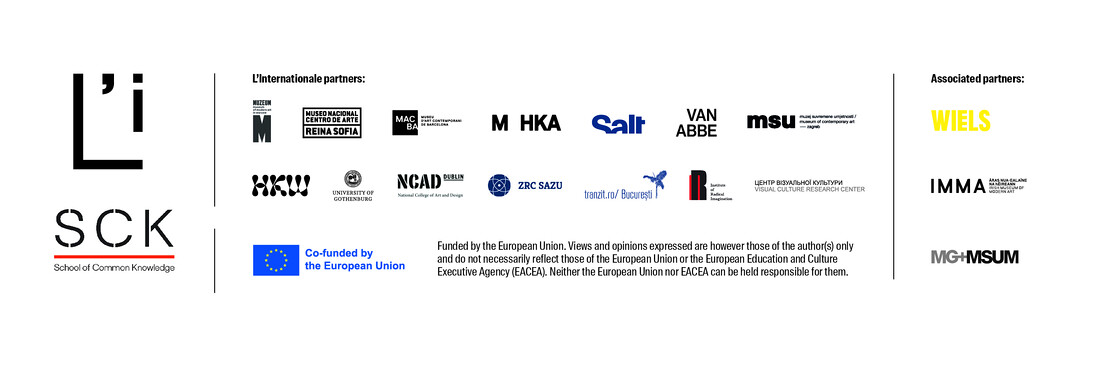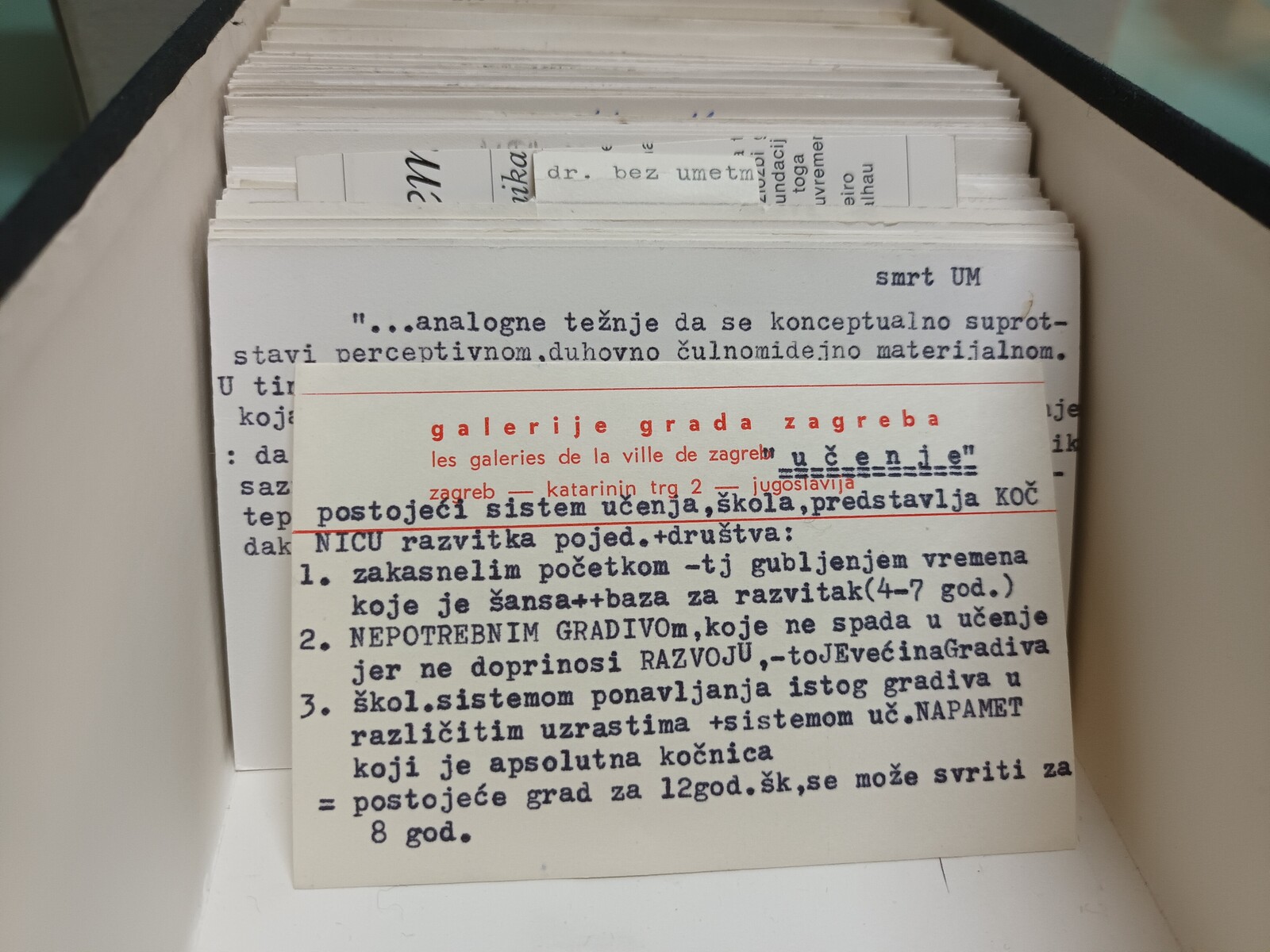MSU Zagreb, Van Abbemuseum Eindhoven, MG+MSUM Ljubljana, ZRC SAZU Ljubljana and L’Internationale
May 24–29, 2024
MSU Zagreb, Van Abbemuseum Eindhoven, MG+MSUM Ljubljana, ZRC SAZU Ljubljana and L’Internationale invite applications for a pilot of the new School of Common Knowledge (SCK) to be held in Zagreb and Ljubljana from May 24 to 29, 2024. The School of Common Knowledge draws on the network, knowledge and experience of the L’Internationale museum confederation. Its ambition is to be both nomadic and situated, looking at specific cultural and geopolitical situations while exploring their relations and interdependencies with the rest of the world. The SCK is built on the basis laid by the Glossary of Common Knowledge project initiated by Zdenka Badovinac and Moderna Galerija, Ljubljana and continues its co-learning methodology.
Participants are invited from art, design, architecture and curating but also from related fields such as sociology, political science and anthropology. One can be at any stage in one’s academic or professional career. One should be prepared to contribute one’s own experiences, thoughts and project proposals as well as listen to others.
The pilot programme will speak from central Europe and the western Balkans seeking to co-learn how to resist and transform the alliance of neo-liberal and neo-fascist forces in today’s world. The region has created and sustained specific ways of responding to and against globalization and political hegemonies, as well as alternative ways of engaging with other parts of the world. Unique social models and imaginaries developed here, together with the region’s particular relations to coloniality and imperiality, are useful to reconsider in the light of present conflicts. The programme will offer ways to explore these topics through the voices and experiences of artists and cultural workers grounded in decolonial practices.
The SCK will have access to the collections of the Museum of Contemporary Art in Zagreb, and Moderna Galerija in Ljubljana, which largely contain works by artists from the Balkans and the wider Eastern European region. Similarly, the social and political histories of socialist Yugoslavia and the Non-Aligned Movement will be addressed. We will explore decolonisation, anti-fascist struggles and anti-war narratives up to today. Situated organizations and individuals from the Balkan region will narrate their practices of cultural production and the possibilities that emerge from them. Many of these organisations were shaped by post-war experiences in the 1990s and can therefore directly reflect on anti-war and peace initiatives today. Invited participants include: Nick Aikens, Zdenka Badovinac, Marco Baravalle, BLOK (Zagreb), Manuel Borja Villel, Sezgin Boynik, Sara Buraya Bonet, Crvena (Sarajevo), Charles Esche, Sabel Gavaldon, Irfan Hošić, Jasna Jakšić, Leonida Kovač, Krater (Ljubljana), Tomaž Mastnak, Bojana Piškur, Ana Škegro, Mabel Tapia, Ovidiu Tichindeleanu, Natalija Vujošević, Beti Žerovc, Živi atelje (Zagreb).
The school will engage in different co-learning practices including lectures; visits to exhibitions, collections and archives; walks and physical exercise; site-related experiences; and times of silence. Participants will be invited to propose terms and referential fields that will help us to understand the present and suggest ways to generate collective agency. The curriculum of the school will make use of the online Glossary of Common Knowledge. The ambition is to build a small temporary community that can learn to trust and antagonize each other through exchange and shared experiences.
Participation is free. A contribution of 250 EUR per participant will cover all lunches, dinners and travel from Zagreb to Ljubljana and back. Travel to Zagreb and accommodation in both cities will need to be covered by applicants themselves. Lectures and workshops will be held in English. See internationaleonline.org for more information.
Please send a biography and a short (500 word max.) motivation letter by March 4 to: application. Successful applicants will be informed by March 20.
Museum of Contemporary Art Zagreb
Av. Dubrovnik 17
10000 Zagreb
Croatia
Hours: Tuesday–Friday 11am–7pm, Saturday–Sunday 11am–6pm
T +385 1 6052 700 / msu [at] msu.hr
Moderna galerija
Cankarjeva 15
1000 Ljubljana
Slovenia
Hours: Tuesday–Sunday 10am–6pm
T +386 1 2416 834 / info [at] mg-lj.si
ZRC SAZU—Research Centre of the Slovenian Academy of Sciences and Arts
1000 Novi trg 2
Ljubljana
Slovenia
T +386 1 470 61 00 / zrc [at] zrc-sazu.si
Božidar Jakac Art Museum
Grajska cesta 45
8311 Kostanjevica na Krki
Slovenia
Hours: Tuesday–Sunday 10am–6pm
T + 386 7 49 88 143 / info [at] galerija-bj.si



